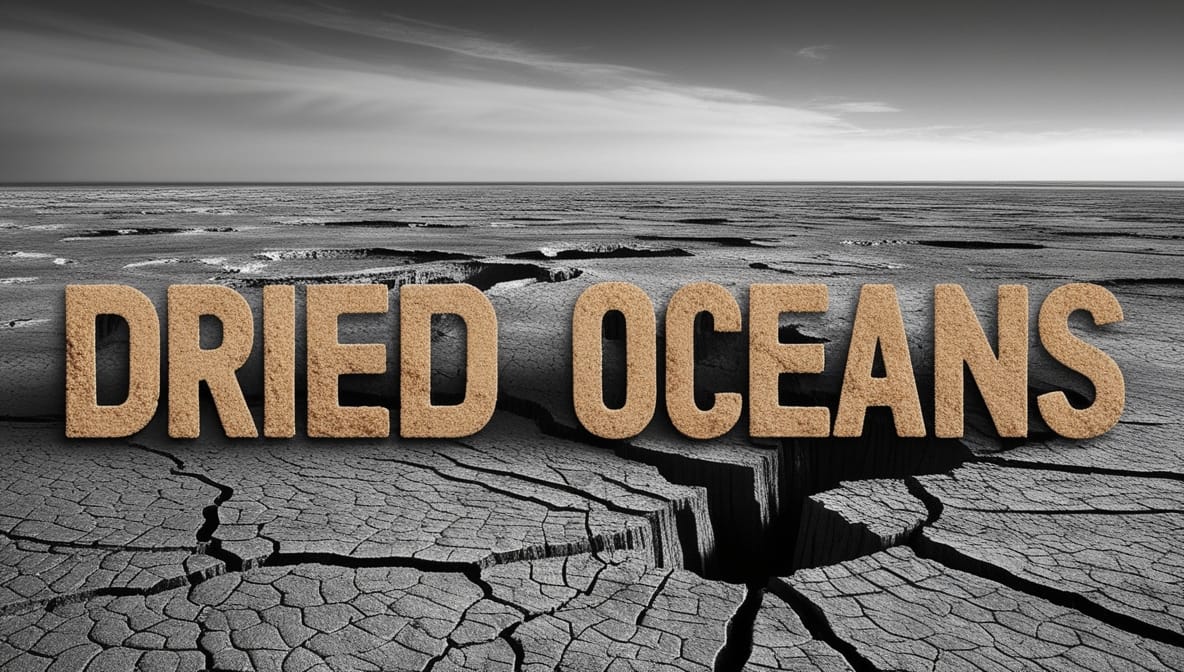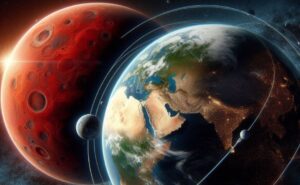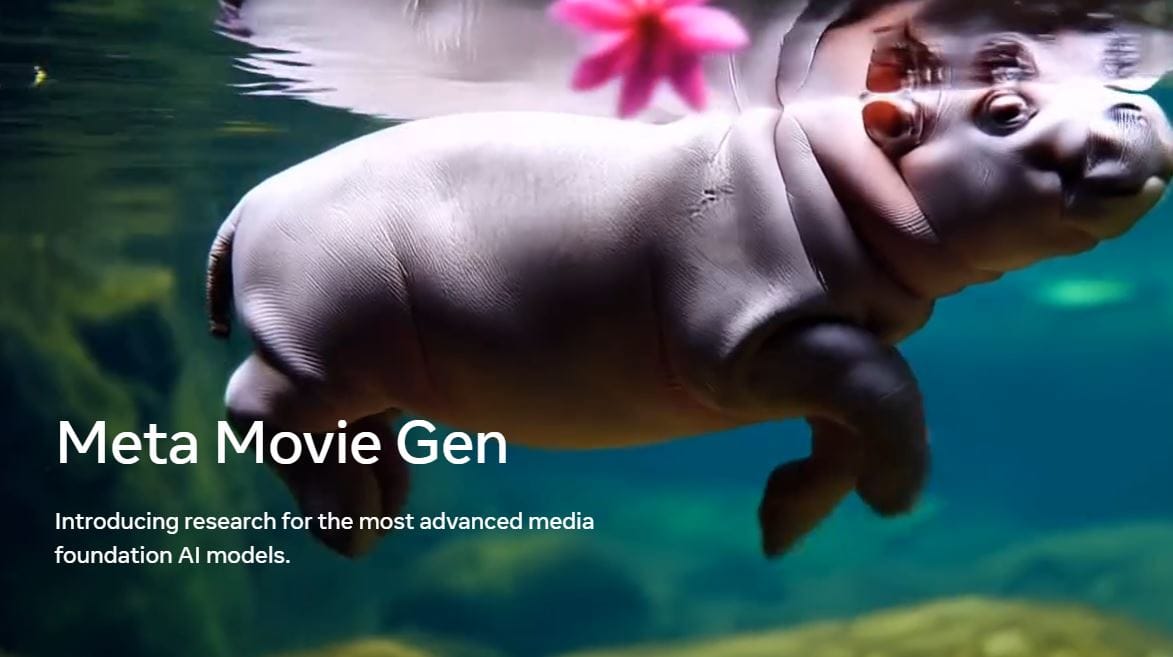Imagine waking up one morning, and instead of the vast blue expanse of the sea, you’re greeted by endless stretches of desert where oceans once ruled. It’s a wild thought, right? But what if the oceans dried up? Let’s explore that step by step and break down what might happen in such a scenario. Spoiler alert: it’s not looking good for anyone.
What Would Happen to the Water Cycle?
First things first, without oceans, the water cycle as we know it would come to a screeching halt. Oceans are the main source of evaporation, leading to clouds, rain, and all the water we rely on. No oceans? No evaporation, no clouds, no rain. Well, that escalated quickly!
So, what does that mean for us?
- No more rain means no more rivers, lakes, or streams being refilled.
- Agriculture would collapse. Farming without water? Not happening.
- Deserts would spread rapidly, turning the Earth into something out of a post-apocalyptic movie.
It’s hard to imagine a world without the soothing sound of rain, but without oceans, we’re left high and (not) dry.
Where Would All the Fish Go?
You might be thinking, “What about all the marine life?” Well, the ocean drying up isn’t just bad for us land dwellers; it’s disastrous for the trillions of creatures living in the sea. From the massive blue whale to the tiny plankton, everything would be wiped out. That’s a whole food chain gone in a snap.
How would that affect us?
- Over 3 billion people rely on seafood as a primary source of protein. No oceans, no seafood, no sushi nights.
- Entire economies that depend on fishing industries would crumble.
- Coral reefs, which support a quarter of all marine species, would vanish, along with the tourism industry that benefits from them.
Basically, you can say goodbye to fish and chips and hello to a life of landlocked monotony.
Could Humans Survive Without Oceans?
Okay, let’s assume the oceans dried up, but somehow humans were left standing. What would happen next?
- The global temperature would spike. Oceans act as giant air conditioners for the planet, absorbing heat and keeping things relatively cool. Without them, things would get toasty—like unbearably toasty.
- Weather patterns would go haywire. Hurricanes, for instance, form over warm ocean waters. Without oceans, weather would become unpredictable and probably much more extreme. Tornadoes, dust storms, droughts – it’s not going to be pretty.
And here’s the kicker: most of the oxygen we breathe comes from the ocean. Specifically, phytoplankton, those tiny little organisms floating around, produce about 50-80% of Earth’s oxygen. Without them, we’d all be gasping for breath. So, short answer? Nope, humans wouldn’t last long without oceans.
Could We Live Off Bottled Water?
You might be wondering, “Can’t we just survive off bottled water or desalinated water from whatever’s left in the rivers?” Sure, we can probably make do for a little while, but even bottled water companies need sources. Without oceans, rivers, and lakes, those sources dry up fast.
Here’s what we’d likely face:
- Freshwater supplies would become a luxury. Prices would skyrocket, leading to water wars (and I don’t mean the fun kind with balloons).
- Desalination plants wouldn’t help for long because they rely on seawater, and, well, there’s no sea anymore.
- Eventually, we’d run out, and no amount of hoarding will save us.
It’s a grim reality when you think about just how dependent we are on something we often take for granted.
Would Land Expand Where Oceans Were?
Alright, here’s a silver lining (if you can call it that): we’d suddenly have a lot more land. The ocean floor would become new terrain for people to explore, settle, and, maybe, mine. You might think, “Cool, new real estate!” But before you start imagining your beachfront property on the old seabed, there are a few problems with this idea.
- The land exposed by dried-up oceans would be barren and salty, not exactly prime real estate.
- Any new land would be prone to constant earthquakes and volcanic activity since tectonic plates move under the oceans. Moving in might come with a side of earthquakes.
- Plus, with no water, the atmosphere would become super dry, meaning dust storms galore.
So while we’d get more land, it would be about as hospitable as Mars – which, ironically, might start to look like the better option.
What About the Global Economy?
The drying up of oceans would devastate global economies. Think about all the industries that depend on the sea—shipping, fishing, tourism, and even offshore oil drilling. Suddenly, all of these industries would disappear. A financial collapse would be inevitable.
Key impacts on the global economy:
- Shipping lanes gone: Oceans serve as highways for 90% of the world’s trade. Without them, goods won’t move, economies will stall, and prices will surge.
- Loss of coastal jobs: From fishermen to hotel staff, millions of jobs rely on the oceans. A world without oceans means a world with mass unemployment.
- Energy crisis: Offshore oil platforms would be useless, making us even more dependent on dwindling land-based resources.
Essentially, the world would enter a depression far deeper than any we’ve ever experienced.
But Seriously, Could the Oceans Ever Dry Up?
Now that we’ve scared ourselves silly, let’s be real for a second. Could the oceans actually dry up? The short answer is no, not anytime soon. The amount of water on Earth is mostly fixed, constantly being cycled through evaporation, precipitation, and runoff. For the oceans to dry up, we’d need some catastrophic event—like the sun heating up enough to boil away all the water (which would happen in a few billion years).
So why think about it?
Sometimes, imagining a worst-case scenario makes us appreciate what we’ve got. The oceans are critical to life on Earth. Even though they’re not going anywhere soon, it’s good to be reminded of how much we depend on them for everything—from the air we breathe to the food we eat.
Final Thoughts
In the end, if the oceans dried up, the planet would be unrecognizable, and life as we know it would come to an end. It’s a grim picture, but it highlights just how important the oceans are to our survival. So next time you’re at the beach or enjoying a seafood dinner, take a moment to appreciate the blue waters. Because without them, we’re in deep trouble—pun intended.






